Resistance exercise is the main stimulus that builds muscle mass.
Protein intake is essential to support to build muscle by providing the necessary building blocks.
Does a normal diet already provide enough protein? Or is a higher protein diet/protein supplementation required? And if so, how much of a difference does it make?
I’ve polled my followers to get a feel of how much of a benefit people expect from extra protein intake.
As the effect is likely very dependent on context, here are the specifics I gave:
- Resistance training 3x week
- 50 g extra protein intake on training days
- habitual protein intake: 1.2 g/kg/d
- Healthy young guys, mix of untrained and a bit trained
- Solid, basic program with average effort
Here’s some of the poll results:
On average, the 572 participants on IG expected around 2 kg extra muscle.
So what’s the correct answer?
Around 0,7 kg according to this meta-analysis. Click the infographic below to see our whole write-up about it.
So extra protein intake is effective to increase muscle mass gains during a resistance training program.
Personally, I think an extra 0,7 kg muscle in 12 weeks is very large for a relatively easy dietary change. However, on average people expected the effect was larger: ~2.0 kg.
Interestingly, there’s also quite a few people who expected no effect at all, or massively overestimated the effect (>3 kg).
Therefore, the fitness community’s expectations are a bit off.
Since not everyone resonates with an infographic based on scientific research, I’ll also try to get the message out there in different formats.
In a year or so, I’ll run the poll again. My hope is that the information we’ve put out will move the average expectations to be more in line with the research data.
In conclusion: extra protein improves muscle mass gains during a resistance-training program. However, the effect is not as much as many believe.

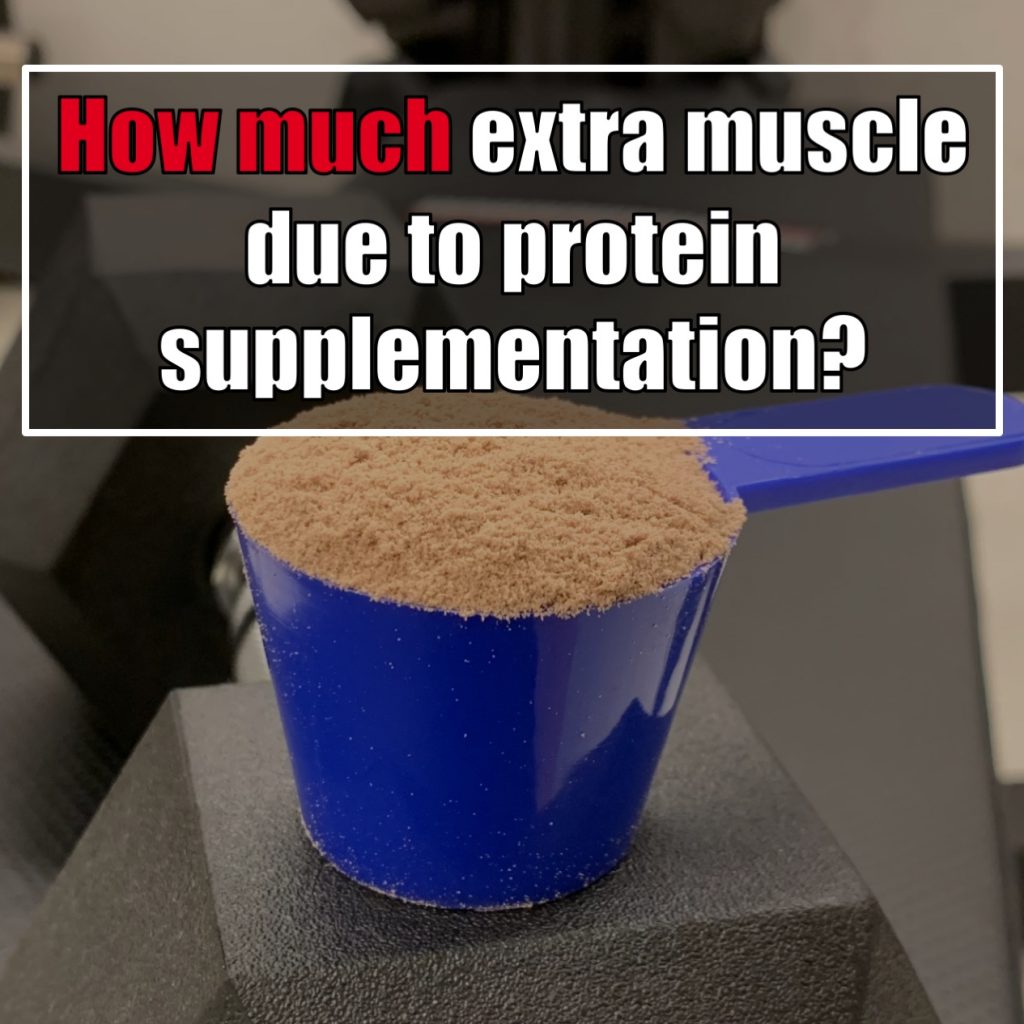
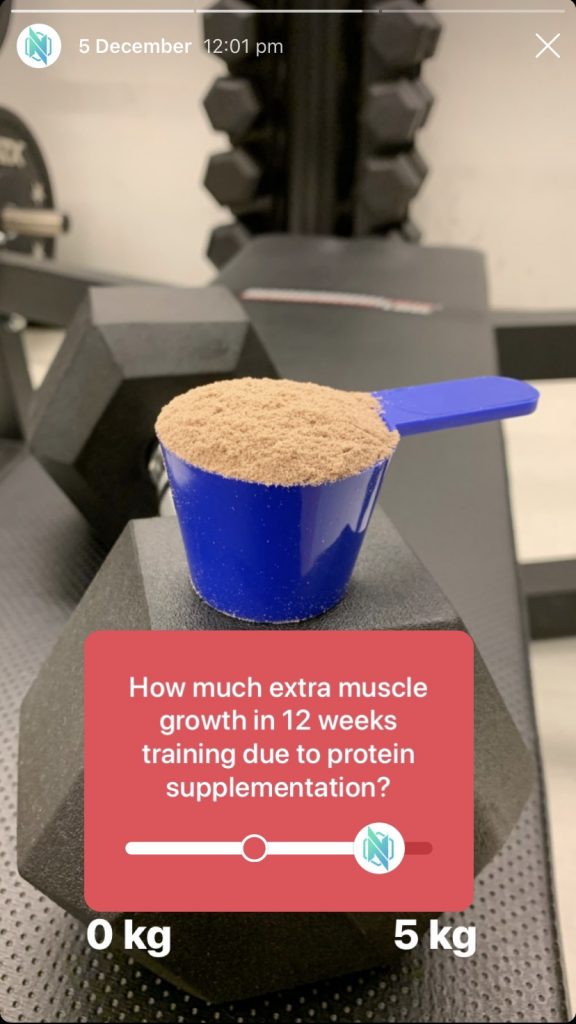
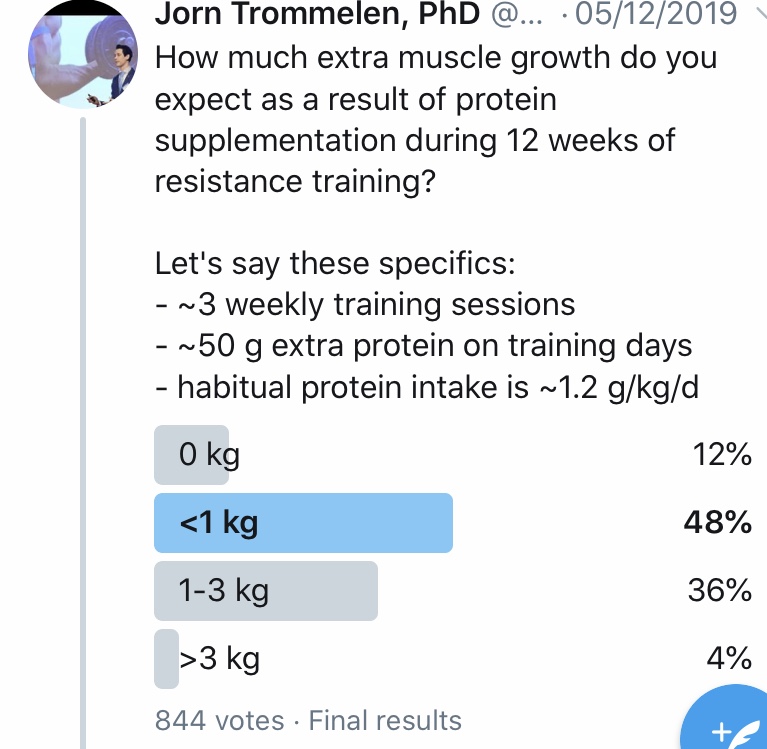
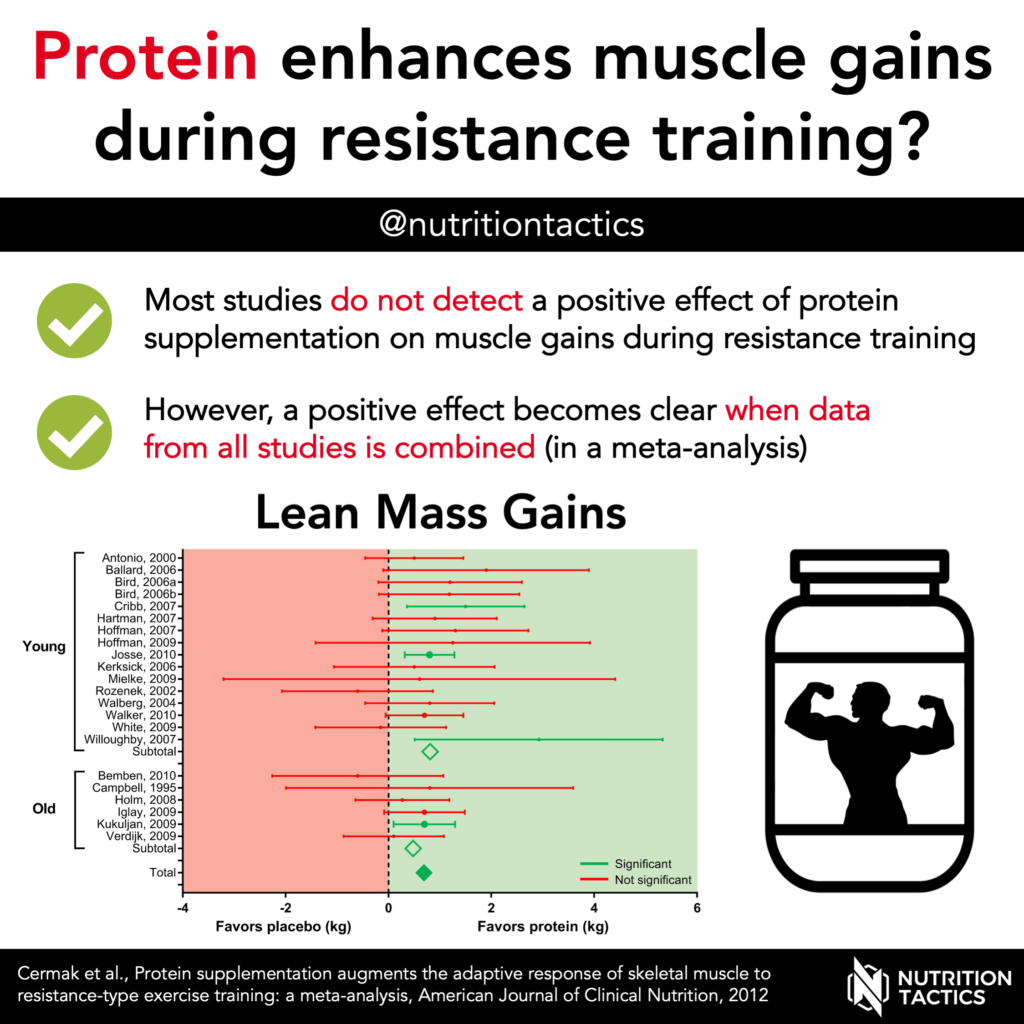
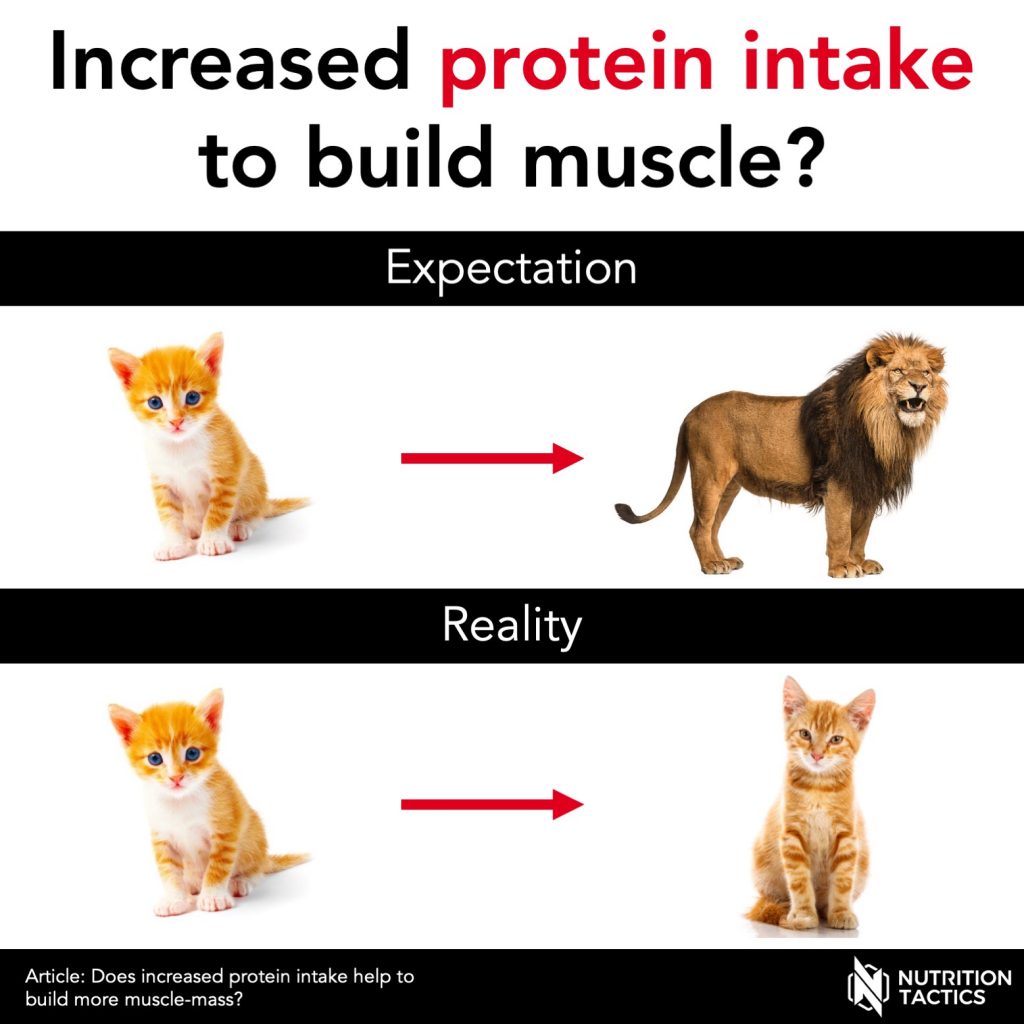
.7 kgs is actually huge, depending on the years trained of the individual. That’s almost 3kgs a year! or 6 pounds. If I can do 6 pounds this year I’ll be ecstatic as I think I already picked the low hanging fruit. lol
I agree that 0.7 is actually quite a lot. It’s just not close to anything that the marketing people claim.
But just because it increased 0.7 kg in x weeks, doesn’t necessarily mean that it will do the same in the next x weeks. Unfortunately, most things have diminishing returns.
Great study! Instead of exogenous protein supplementation, what results can you expect with essential amino acid supplementation? If enzymatic protein digestion leads to individual amino acids why wouldn’t direct amino acid intake provide similar muscle hypertrophy results? Even if protein is ingested, isn’t it true that the resulting aminos will be used for purposes other than muscle hypertrophy as determined by physiological demands? If your muscle is analogous to a completed jigsaw puzzle then protein powder would be a bunch of puzzle pieces upside down in a plastic bag and the amino acids would be the individual pieces. To complete the puzzle using protein powder would require you to remove the pieces from the individual bags, turn them over to see the front of the piece then use for assembly. Using amino acids, I would have the individual pieces ready for assembly.
Hey Joseph,
Yes, you would expect similar results with amino acid supplementation. Amino acids can indeed be seen as pre-digested protein. Keep in mind that amino acids are more expensive than protein. In addition, food may contain other nutrients that are useful. So it’s not always ideal to strip nutrition down to the most basic building block. But yeah, fundamentally it’s the essential amino acids you need.
One consideration when supplementing amino acids is what composition you use. You need all the essential amino acids in appropriate amount to get a robust stimulation of protein synthesis. If you only consume BCAA’s for example, you miss some of the other essential amino acids and only get a small response. You don’t need to consume the non-essential amino acids, although when you don’t, you probably need more of the essentials to compensate.
Where the ingested protein or amino acids go is indeed determined by metabolic demands. For example, following exercise, more of the ingested protein ends up in muscle tissue. But it’s not black/white, all tissues will take up and ultilize ingested amino acids. The relative proportion will just depend on the condition.
Did you find a significant effect of the placebo effect?
You would have to specifically design a study to see if there’s a placebo effect and how big it is. It seems very likely there’s some placebo effect if you tell people the protein supplement will help them a lot.